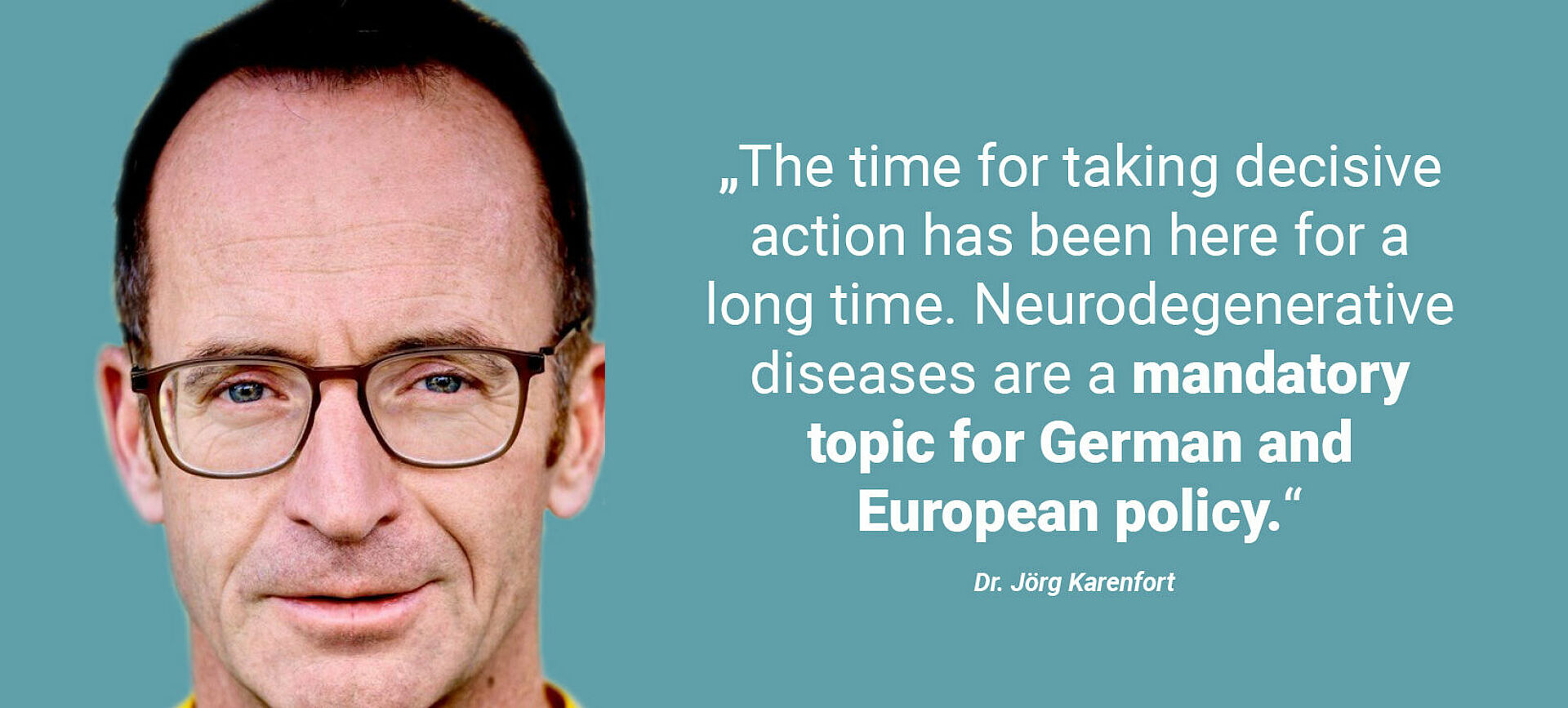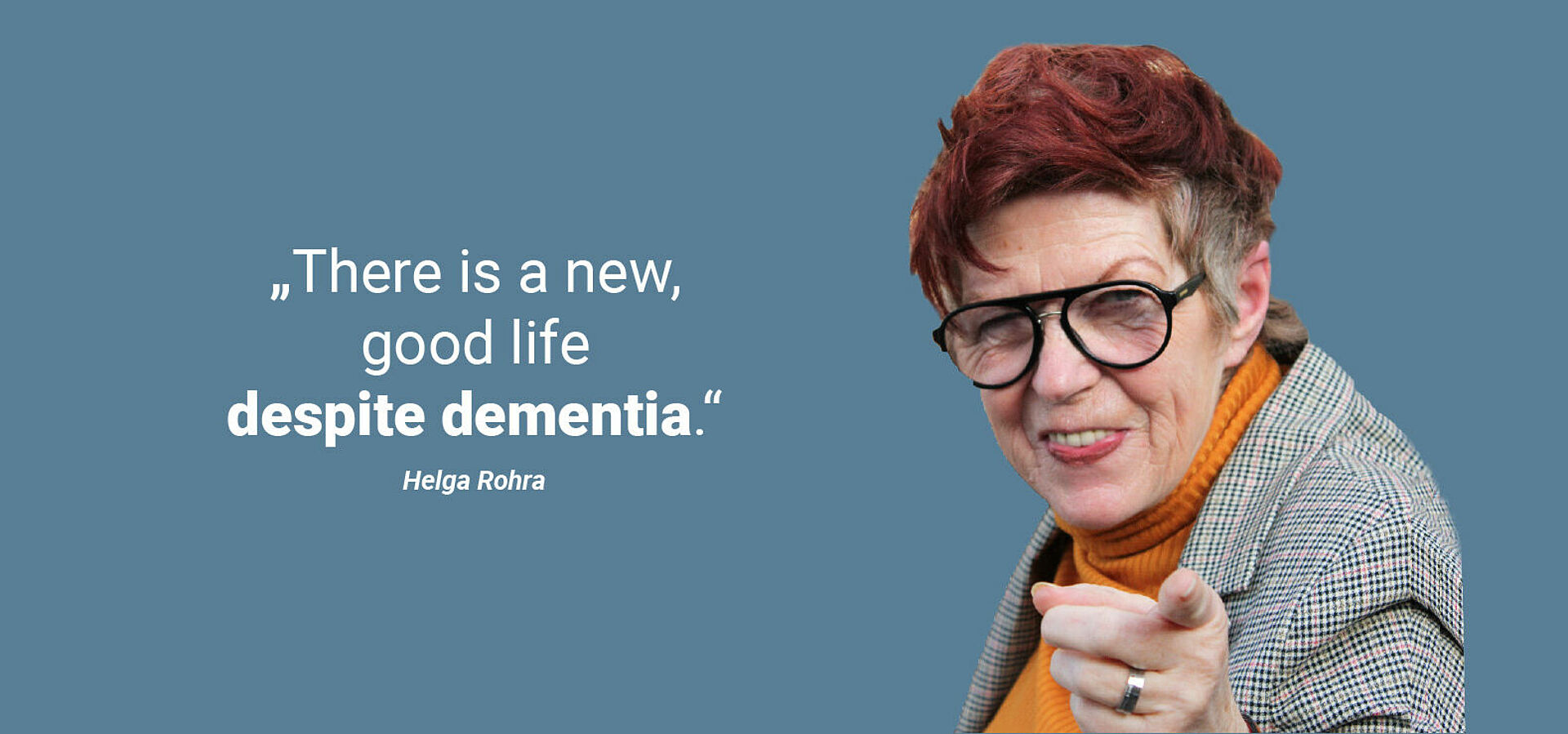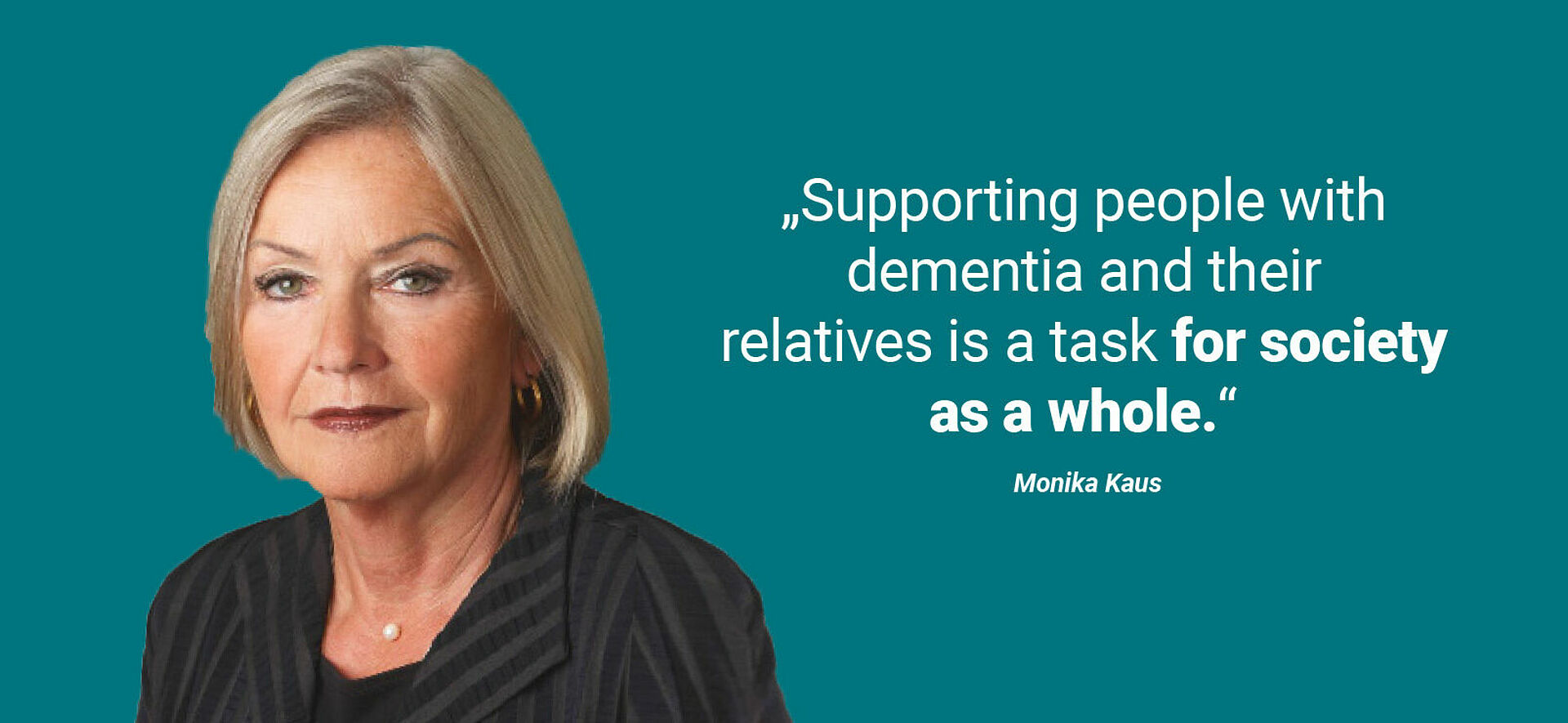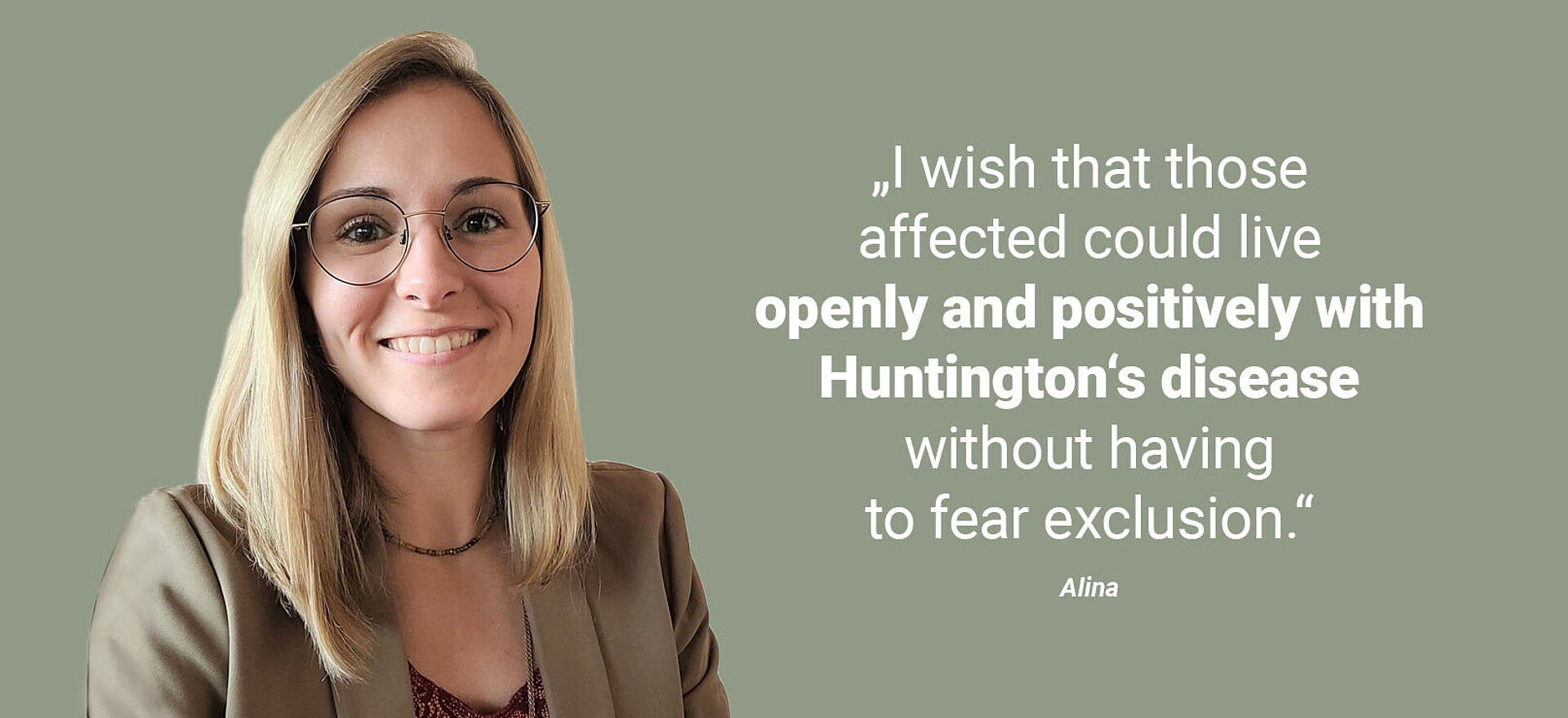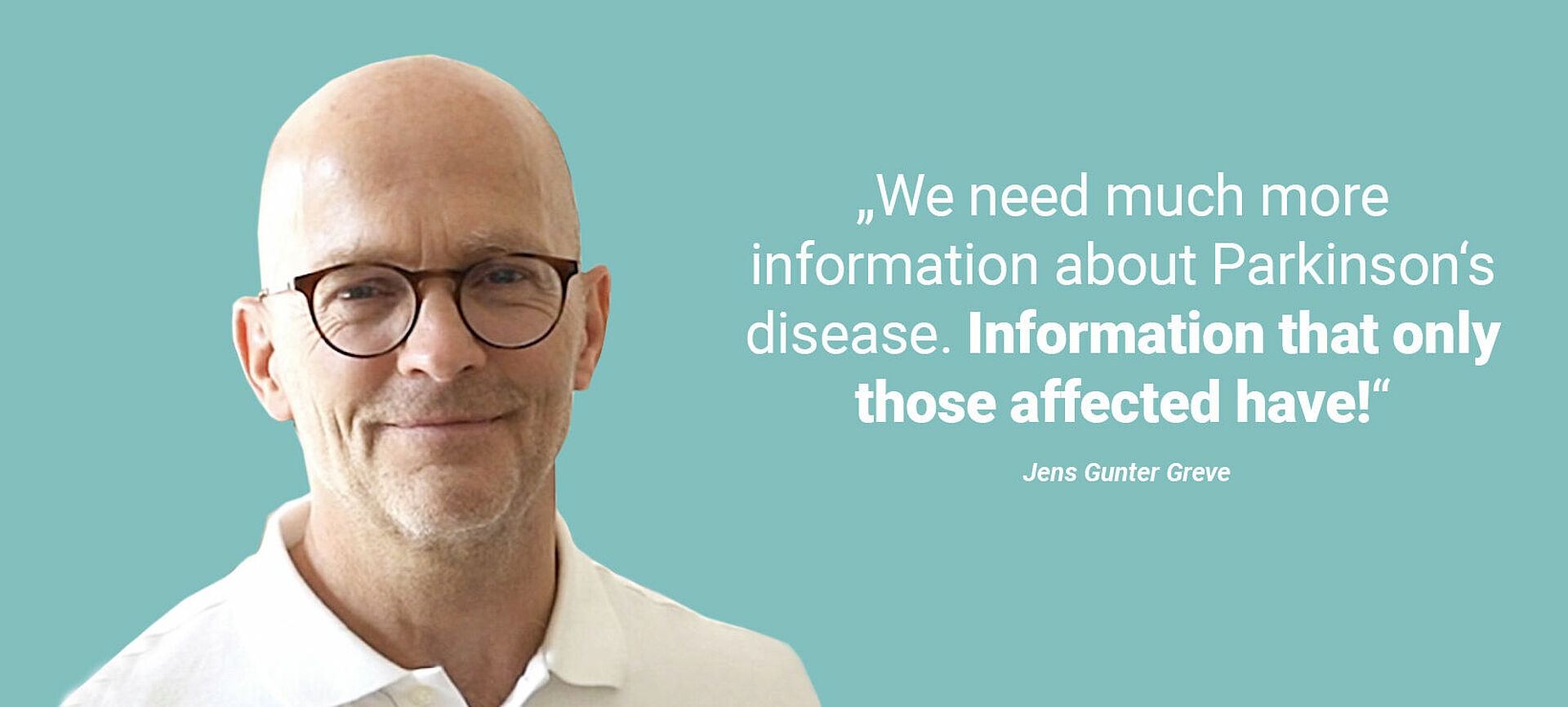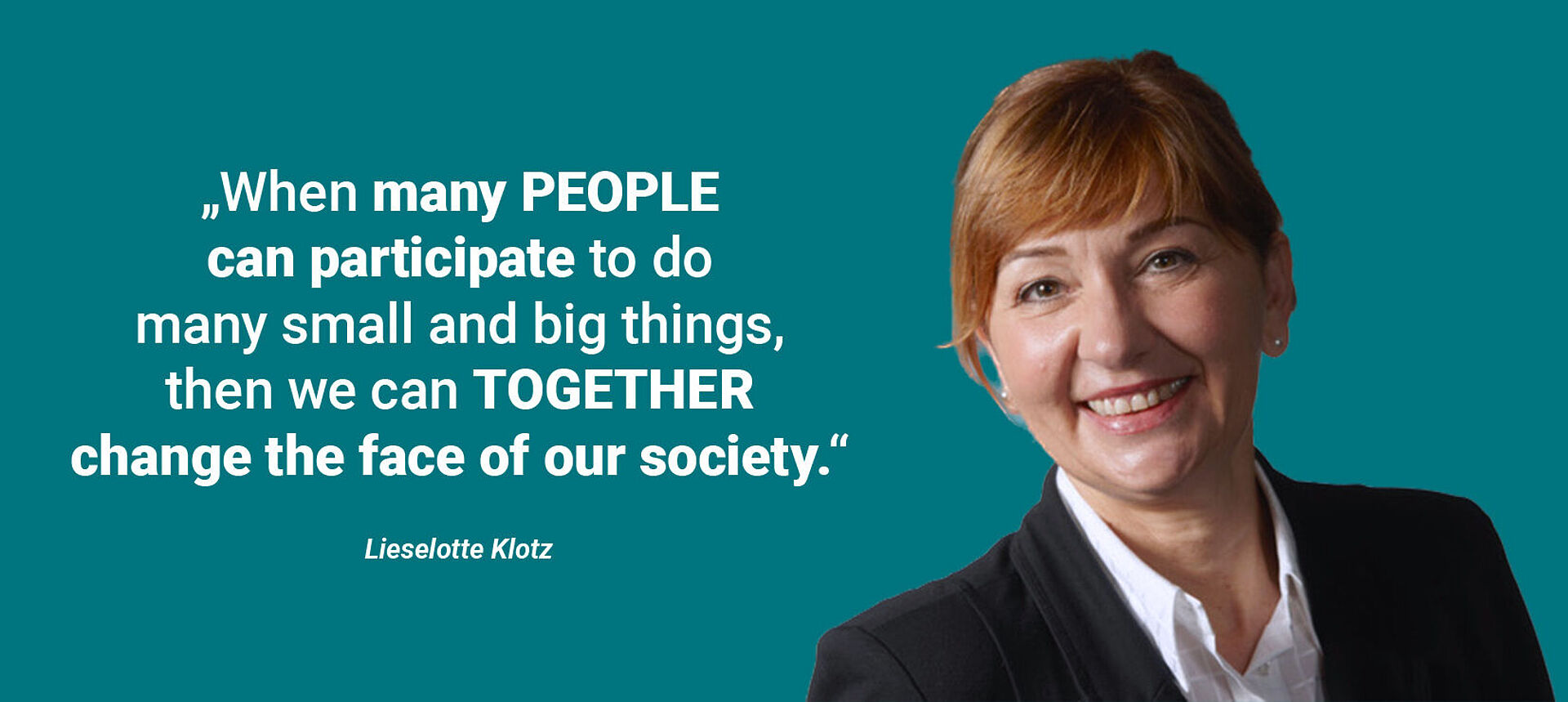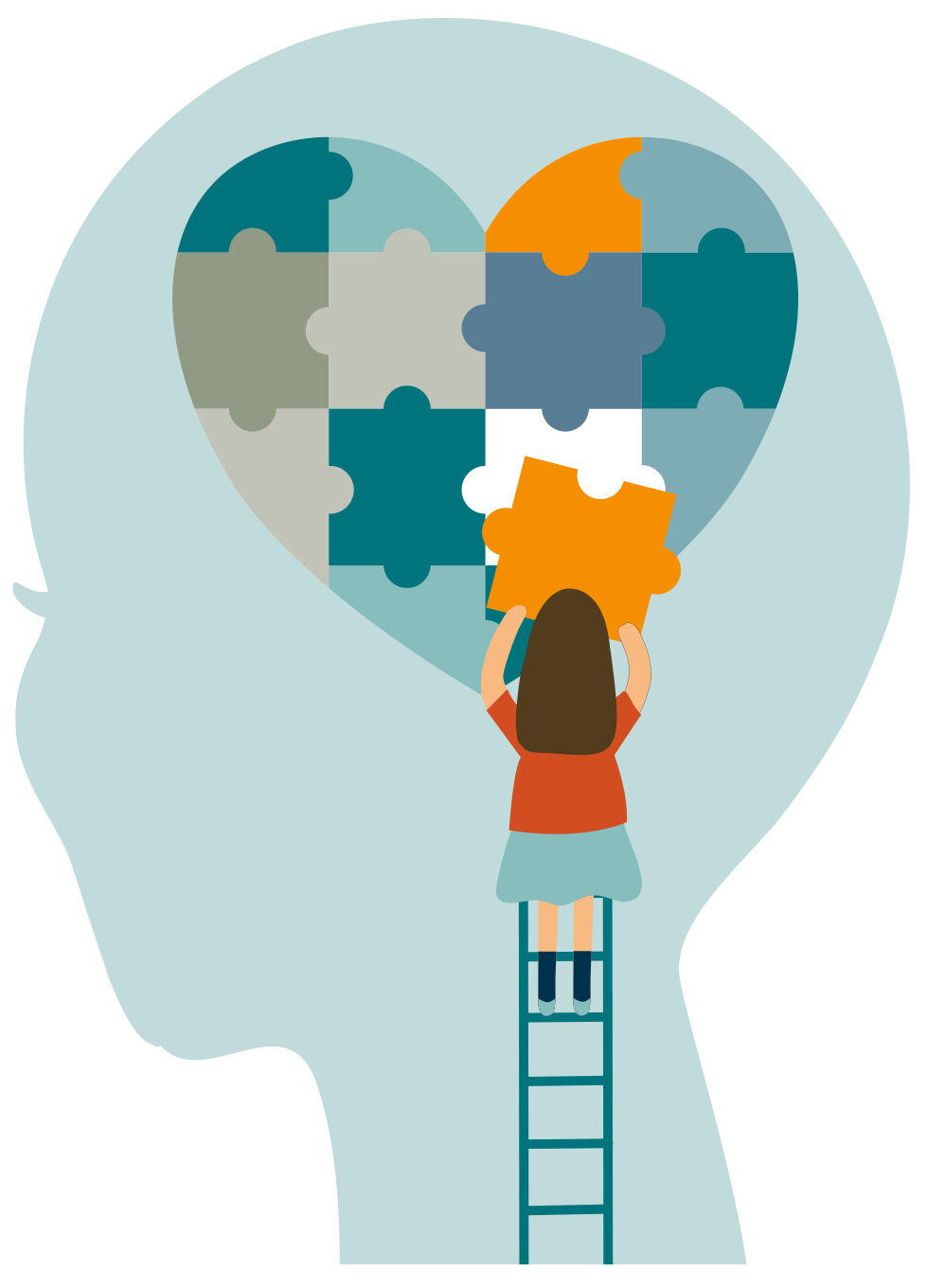
DZNE-Patient Council
The aim of the DZNE-Patient Council is to promote awareness of disease-related issues that need to be researched and addressed within the DZNE mission. The Patient Council advises the DZNE Board and DZNE scientists on issues related to the further integration of patients into society and the avoidance of their stigmatization, as well as on health issues that can be improved through medical interventions or care approaches. The Council advocates for the cause of neurodegenerative diseases and DZNE research to the public, policy makers and the media. The goal is to integrate the patient voice into core research activities and to work together to increase society's awareness of all issues related to neurodegenerative diseases. The Council is composed of affected individuals and representatives of patient organizations, elects its own chairperson, and meets with the DZNE Board at least twice a year. The Council is supported by the DZNE in all necessary functions.

Dr. Jörg Karenfort is a lawyer and partner in an international law firm. He founded the YUVEDO Foundation together with entrepreneur Jens Greve in response to his diagnosis of Parkinson's disease. In doing so, he wants to make his contribution to further and more targeted research and better care for people with Parkinson's and other neurodegenerative diseases. For him, research into the causes, especially with a with focus on possible environmental influences or climate change, the consistent use of patient data and new technologies, and the right incentive structures for researchers and pharmaceutical companies play an essential role.
further links:
YUVEDO Foundation
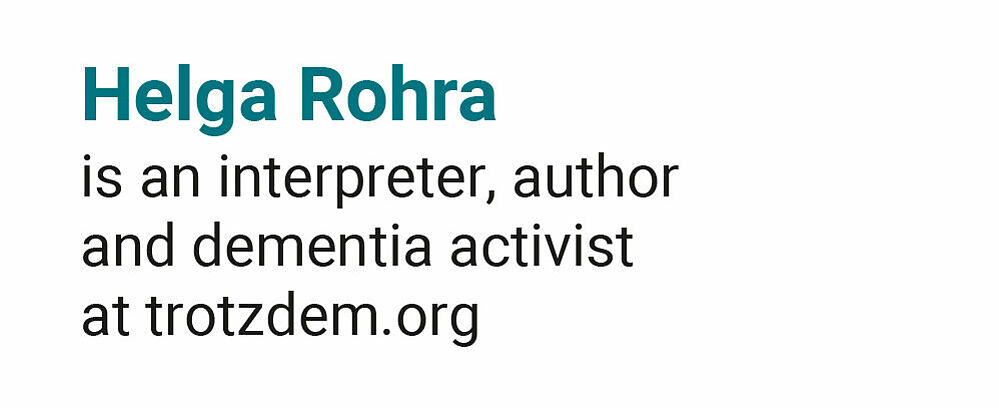
Helga Rohra is an interpreter and was diagnosed with Lewy body dementia 12 years ago. Immediately after the diagnosis, her commitment to dementia began - nationally and internationally.
She was the first patient with dementia on the board of an Alzheimer Society in Germany, is chair and founding member of EWGPWD (European Working Group of People With Dementia) Brussels / Luxembourg under the umbrella organization Alzheimer Europe, is a member of the Expert Advisory Board of WHO - Brain Health Unit and has published several books on dementia. She is also active online through her website trotzdem.org.
further links:
trotzDEM.org
EWGPWD
WHO – Brain Health Unit
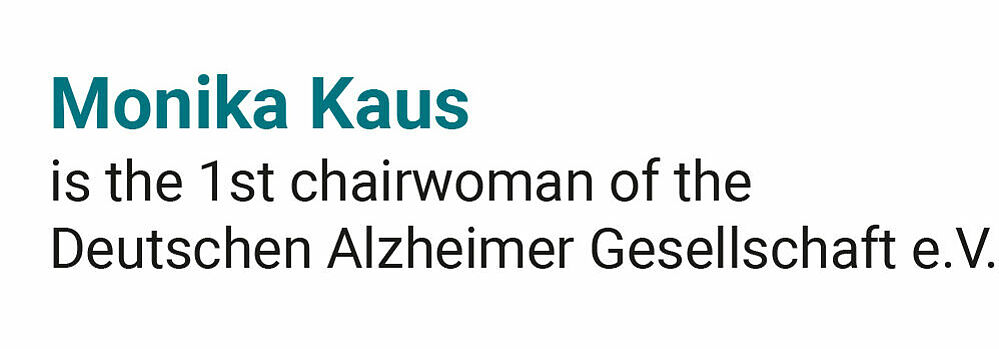
Monika Kaus has been actively involved with the topic of Alzheimer's since her mother became ill in the 1990s and was diagnosed with Alzheimer's in 2000. Since 1999, Monika Kaus has been a member of the Alzheimer Society Wiesbaden, where she was an honorary board member from 2005 to 2009. Since 2006 she supports the umbrella organization of the German Alzheimer Society as treasurer, since 2015 she is also the first chairwoman there. Furthermore, Monika Kaus is a founding member of the Dementia Forum of the city of Wiesbaden and is active in two working groups there, "Public Relations" and "Care".
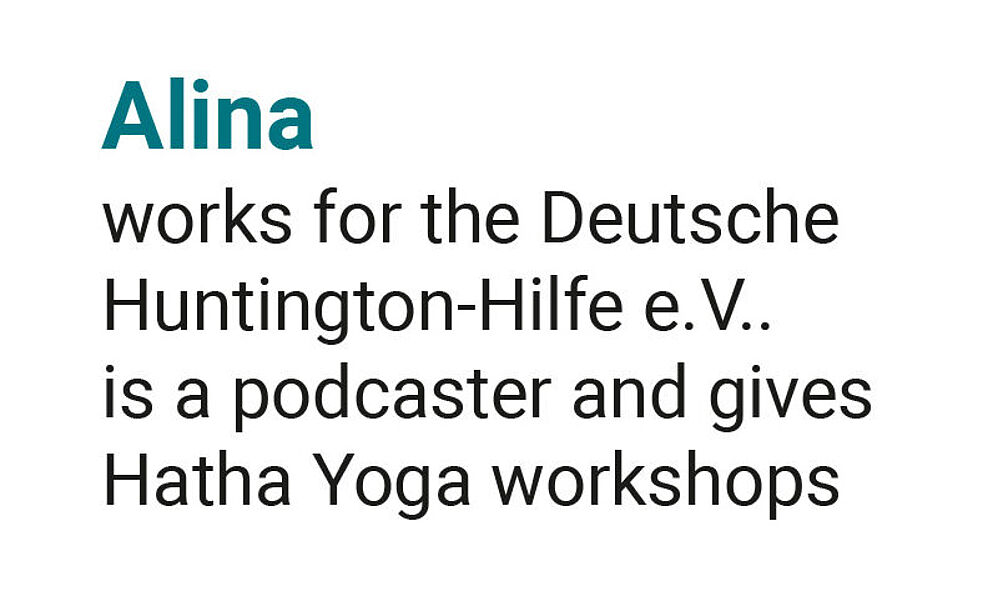
Alina has known since 2015 that Huntington's disease runs in her family. Her aunt has already passed away from the consequences and her father has been living with the diagnosis for almost 10 years. Alina also decided to undergo predictive genetic testing and now knows she inherited the gene. As she becomes involved in support groups, she realizes how much people struggle with the diagnosis and their lives with the disease. She originally studied media production and worked in the film business as a creative producer. She then used her expertise to start the podcast "Grow-Strong" and now supports DHH with a part-time position in PR & Public Relations. She is a courageous life artist and chooses a different way of life with less stress, but also with less security. Living in the here and now is her motto. When she then completes a training as a Hatha Yoga teacher in India, her circle closes more and more. Today she gives workshops on topics such as "Healthy Habits - how to calm our nervous system" and participates in events with movement therapy. Because even with Huntington's, it is now known: Mindful and positive living can probably save us from a too early onset of the disease and mitigate its course.
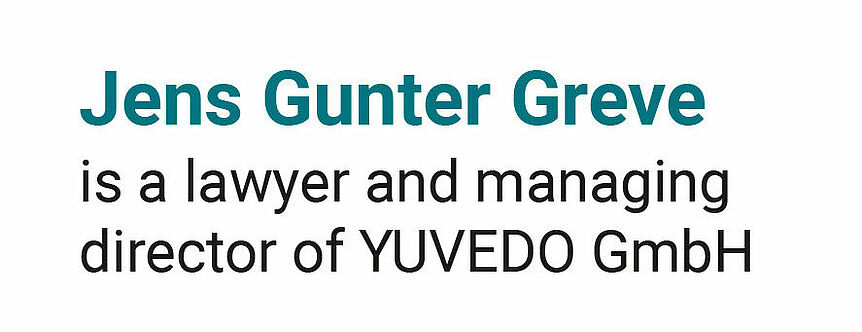
Jens Gunter Greve has been diagnosed with Parkinson's disease since 2013 and has since studied the disease and contributed to solutions to improve diagnosis, research and therapy. He is co-founder of MedEngine, which develops a Parkinson's watch to measure symptoms, founder of YUVEDO, which offers a Parkinson's app with comprehensive neuro-exercises, and co-founder of the YUVEDO Foundation. He is a member of various working groups, including the 'Research Interest Group' of EPDA. In September 2021, he organized the ITTF Parkinson's Table Tennis World Championships as Chair of the LOC. His current focus is on actively engaging patients and family members in Parkinson's research. He is a licensed attorney, but has been a passionate entrepreneur for 30 years and lives with his family in Berlin.
further links:
Yuvedo.com
YUVEDO Foundation
Pwttc.de
Medengine.co
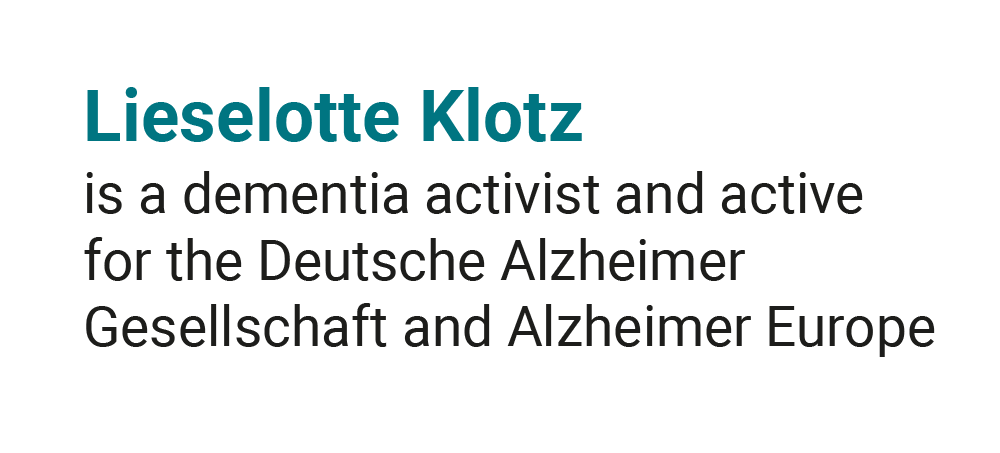
Dementia has been an issue in Lieselotte Klotz's life for over 15 years. Her mother, who is now 87 years old, has Alzheimer's, a cousin has Parkinson's, and the diagnosis of dementia also took her away from her active, successful, fulfilled private and professional life at the end of 2017. She, who was always in the thick of things, in her private life, at work, in politics, in voluntary work and in leisure activities, made the bitter experience that people from her environment withdrew consciously or insecurely as soon as the word "dementia" was in the room.
She did not let herself be discouraged by the disease, but found her mission in it. Aware that the word "dementia" often evokes uncertainty or withdrawal, she decided to confront established taboos. Since 2020, she has been involved in many regional working groups, in the advisory board "Living with Dementia" of the DAlzG, Berlin (https://www.deutsche-alzheimer.de/ueber-uns/gremien ), in the European Working Group People with Dementia, Alzheimer Europe. ( www.alzheimer-europe.org/about-us/european-working-group-people-dementia ). Today, she brings her entrepreneurial leadership skills, technological understanding and innovative spirit to these volunteer activities.
Her goal of creating greater awareness of the situation of people with dementia runs like a thread through her volunteer work, such as public relations, social integration and political advocacy. With determination, she promotes a more inclusive and supportive society.
Lieselotte Klotz, born in 1960 in the Rhineland, single mother of three children, was a successful managing director of a large IT company until 2017. In her free time, she has been a passionate sailor for many years and loves technologies & digital. Born in the Rhineland, she now lives in Kühlungsborn on the Baltic Sea.
Since June 2023 now also a new member of the Patient Advisory Board of the DZNE.
further links:
Deutsche Alzheimer Gesellschaft
Alzheimer Europe

